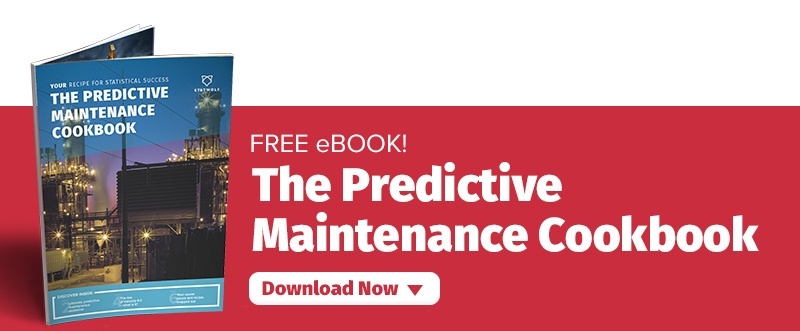Is Blockchain technology a game-changer or just the latest fad?
Blockchain – it’s a word that could lend itself to the name of an ’80s-inspired band. It’s also something we’re all going to start hearing a lot more about.
Still in relative infancy, a Blockchain is a synchronised, distributed database that’s spread around the globe with no centralised storage point.
And as insurance chain AXA says, it could lead to, “the end of banks.”
In real terms, Blockchain technology is the backbone of digital currency Bitcoin, and it’s starting to infiltrate the digital world at large too.
New kid on the Blockchain
While Bitcoin has many detractors (it’s been referred to “as a dangerous bubble” by leading economists at Yale), Blockchain is unanimously regarded as a breakthrough in the tech space.
With no centralised storage point, Blockchain removes the need for an intermediary – which is particularly potent in the banking world where the intermediary takes the form of a financial institution.
Virtual banking is on a remarkable rise and Blockchain is powering many of the disruptors in the space. Revolut, a London-based fintech startup, recently passed one million users. Like many cloud-based successes, Revolut has no physical assets; transactions are entirely digital with currency travelling in ones and zeroes across cyberspace.
Just like Bitcoin before it, Revolut intends to revolutionise banking as a concept – with Blockchain as the enabler.
According to Bloomberg, Blockchain technology may eventually be used to produce a new kind of central-bank money (i.e. money created by commercial banks), with digital currency replacing electronic payments.
Eventually, digital currency may even replace physical money entirely – though that concept is rooted very firmly in the future.
In terms of real-life uptake, M-Pesa – a mobile phone-based money transfer and financing service – has seen huge proliferation in Kenya, Tanzania, South Africa, Afghanistan and India since its launch in 2007.
By 2010, M-Pesa was the most successful mobile phone-based financial service in the developing world. The Bitcoin-based payment platform, Bitwala, now offers Bitcoin-to-M-Pesa transactions at zero cost – and it may be responsible for ushering in a financial revolution of its own right in the developing world.
Away from banking, Blockchain technology has a welter of potential usages, not least of all in government and auditing.
From money to Moscow
IBM has suggested that Blockchain could make government-run digital identity programmes safer by allowing a ‘self-sovereign’ approach.
Likewise, the Moscow government is introducing plans to test Blockchain technology in voting initiatives to reduce voter fraud. In the year since the initial statement about the technology, Moscow officials have developed a pilot system for tracking votes.
A government official said that, “The introduction of this technology will make the voting in the [Active Citizen initiative] even more open: it will be difficult to say that the administration incorrectly interprets the answers, changes the results of the voting when the citizens themselves can verify this information.”
The code for the voting Blockchain is open-source and available on Github.
Use cases stretch beyond fraud detection too. General Electric has invested in Blockchain with the intention of creating cleaner data that can be used in predictive maintenance and data science projects.
One current project focuses on air quality monitors, which could have a dramatic impact on air pollution. “Currently, the data from [air quality monitor] sensors is segmented, controlled, and even manipulated, by governments and other organisations,” Chronicled’s Samantha Radocchia wrote. “Putting that data on a Blockchain would present us with a complete and transparent picture of the air quality around the world, not just snapshots from different regions.”
IoT: a case study on Blockchain
By 2020, Gartner says there’ll be 8.4B Internet-of-Things devices; the collective network of connected devices such as wearables, telematics devices, drones, networked appliances and navigational tools. This growth is accelerated via consumer adoption of ‘smart’ products, but increasingly, industry is getting on board too.
The benefits of IoT are clear. “Advancements in artificial intelligence (AI) and machine learning (ML) are making smart devices even smarter. The IoT collectively generates immense volumes of data and with great variety, which, in turn, are used to teach and refine algorithms and make technologies function better,” says Forbes.
When IoT-generated data is added to a blockchain, for example the information culled from thermostats, it can be used to accelerate the evolution of IoT, such as help to monitor when energy demand will be highest, which in turn helps to prevent outages.
Blockchain can also democratise Big Data for industry players, both big and small. That could be great news for the 60 to 73 percent of data within an enterprise which is currently untapped.
The benefits go beyond energy. As a distributed ledger technology, blockchain has massive innovation potential in all areas of financial services. Insurance is predicted to be among the fastest growing industries in the period until 2021, according to the International Data Corporation.
For the insurance industry, blockchain has many specific benefits. “The main use case of blockchain in insurance are smart contracts and the enhancement of several processes such as claims management”, explains i-scope. “Other applications include fraud management, legally required applications ... and even the usage of technologies in an insurance context.
For insurance companies, the benefits of data from in-home and in-industry IoT devices have a strong value proposition. This data can help them develop new products, grow new business, improve risk assessment and educate existing policyholders in loss prevention.
While the intricacies of how a Blockchain actually works will remain impenetrable to most consumers, companies using the tech are on a trajectory towards mass propagation. Expect to hear much more about it into the future.
Are you interested in IoT?
At Statwolf, our advanced Data Science consulting service produces results for complex problem solvers.
If you’re responsible for highly complex problem solving, with a need for strict monitoring and issue prevention, Statwolf’s data scientists can help. Through data science, we’ll analyse your data, and find the best way to make use of it, leading to valuable insights. Talk to us today.
Want to make sense of your data? Download our comprehensive guide: The Predictive Maintenance Cookbook.



